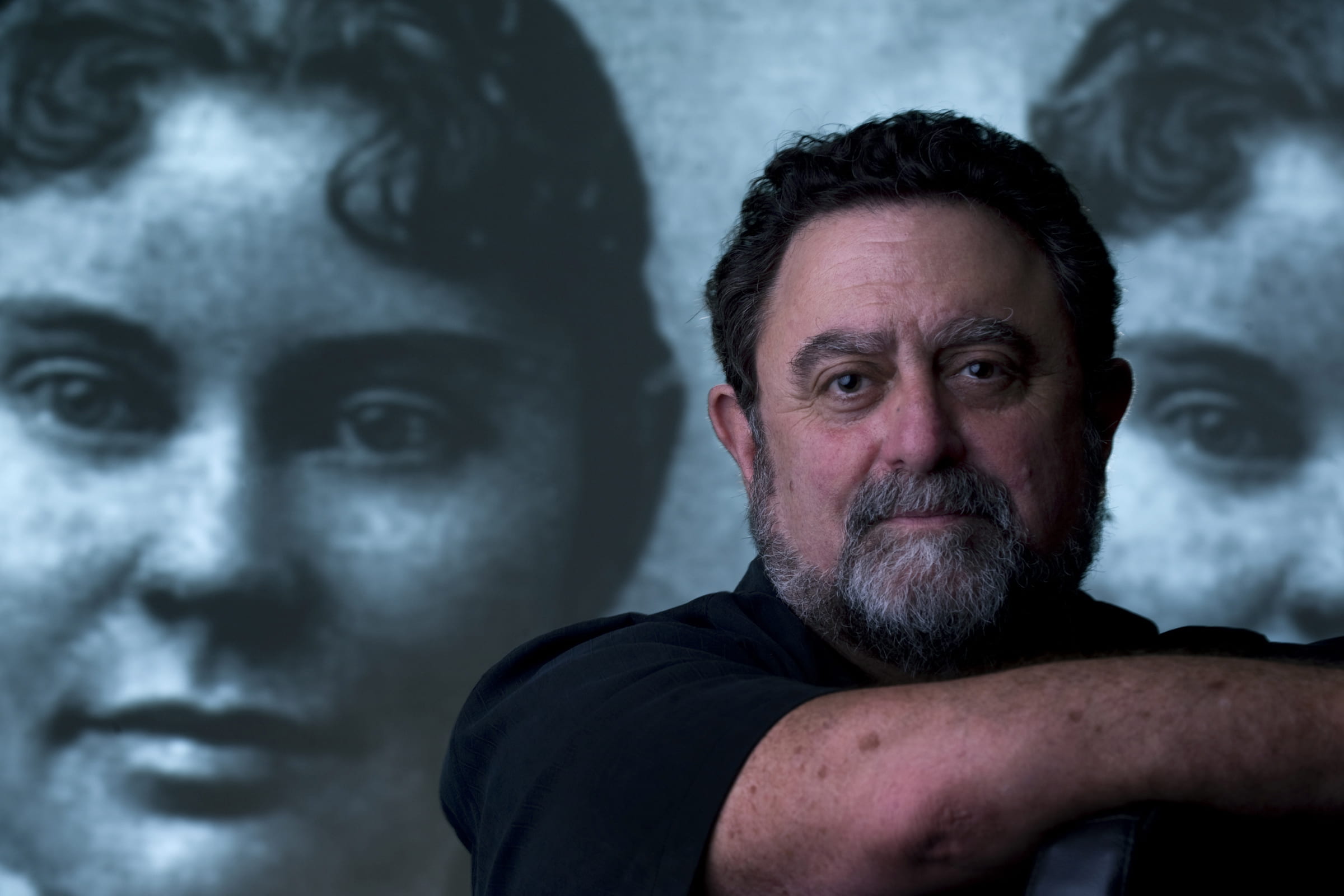Killer instinct

It’s a lecture UC Irvine neuroscientist James Fallon has delivered around the world, even on the hit TV show “Criminal Minds.” Discussing the biological traits of murderers, Fallon describes how he correctly identified 30 killers out of 70 subjects in a double-blind experiment simply by studying their brain scans. Audiences are fascinated.
But a couple years ago, he got a call from a concerned citizen who’d watched a video of the talk: his mother.”She said, ‘I see you’re going around lecturing about psychopathic killers,'” Fallon recalls. “‘You’re speaking as if you come from a normal family. Did you know there are murderers in our family tree?'”
That’s when his brain research took a twist worthy of Agatha Christie.
A cousin had done some sleuthing, and Fallon learned of eight potential killers among his ancestors, starting with Thomas Cornell, who was hanged in 1673 for murdering his mother — the first case of matricide in colonial America. Lizzie Borden, who was tried but acquitted in the hatchet deaths of her father and stepmother in 1892, is a distant cousin in that same Cornell branch.
“Mom’s happy the killers are on my father’s side of the family,” Fallon jokes.
Just for fun, he decided to find out who among his living relatives might be genetically predisposed to murder. (He undertook the tongue-in-cheek investigation to satisfy his own curiosity; his findings are anecdotal and have not been published in a peer-reviewed journal.)
“It became a parlor game. I wanted to see who had the high-risk genes, who the ‘evil’ one was lurking in our midst,” he says. “The kids, my brothers, my wife, my mom — everyone was buzzing about it. It was a new thing for us to argue about.”
Fallon compared eight family members’ DNA samples and brain scans with those of killers. The results, he says, proved “slightly embarrassing.” He had gone looking for a potential murderer — and found one in the mirror.
“The joke was on me,” he says. “It turned out I was the ruffian. I have the exact brain pattern of a psychopathic killer.”
Scans showed that his orbital cortex — the gray matter believed to be involved in social adjustment, ethics, morality, and the suppression of impulsivity and aggression — is inactive, as it is in many criminals. He also has all five major gene variants linked to aggression.
So why isn’t Fallon an ax murderer? Nurture has triumphed over nature. He lacks a third thing common among killers: early exposure to violence or severe abuse.
“I had a charmed childhood; I was never abused. No one’s done anything bad enough to turn me into a killer,” he says. “It shows that your genes are not a jail sentence.”
Raised in a loving family, Fallon never struggled with the bigger issues that often trouble adolescents. He met his wife, Diane, at age 12. “I never had to worry about dating,” he says. And his career choice was a no-brainer: He’d wanted to be a scientist since he was a boy playing with microscopes, frogs and snakes.
Past chair of the UCI Academic Senate and School of Medicine faculty, Fallon made the unusual switch from anatomy & neurobiology, retiring as professor emeritus three years ago, to psychiatry & human behavior because it allowed him more research freedom.
His neuroscientific projects have shed light on everything from Alzheimer’s disease to Parkinson’s. He’s one of the first researchers in the world to study stem cells in the brain, demonstrating that they could repair damaged areas and restore function when stimulated by a growth-inducing protein. In his two most recent published studies, he used stem cells to successfully restore mobility in rats after a chronic stroke. His findings could lead to new treatments for human stroke patients.
Fallon and colleagues also used brain imaging to identify two novel genes associated with schizophrenia and a new gene associated with Alzheimer’s.
Next he plans to explore countries where war has affected multiple generations to see if prolonged exposure to violence causes an increase in aggression-related genes, leading to a warrior culture.
Fallon hopes his research will promote greater understanding of violence and the mentally ill — and that, through positive nurturing and anti-war public policies, parents and society can avoid creating monsters.
“(Studying genes and aggression) gets people thinking about the biological bases of behavior,” he says. “Most killers can’t help it, so the nurturing component is crucial. There’s a message here: Treat your kids and your culture well.”
Originally published in ZotZine Vol. 2, Iss. 6


